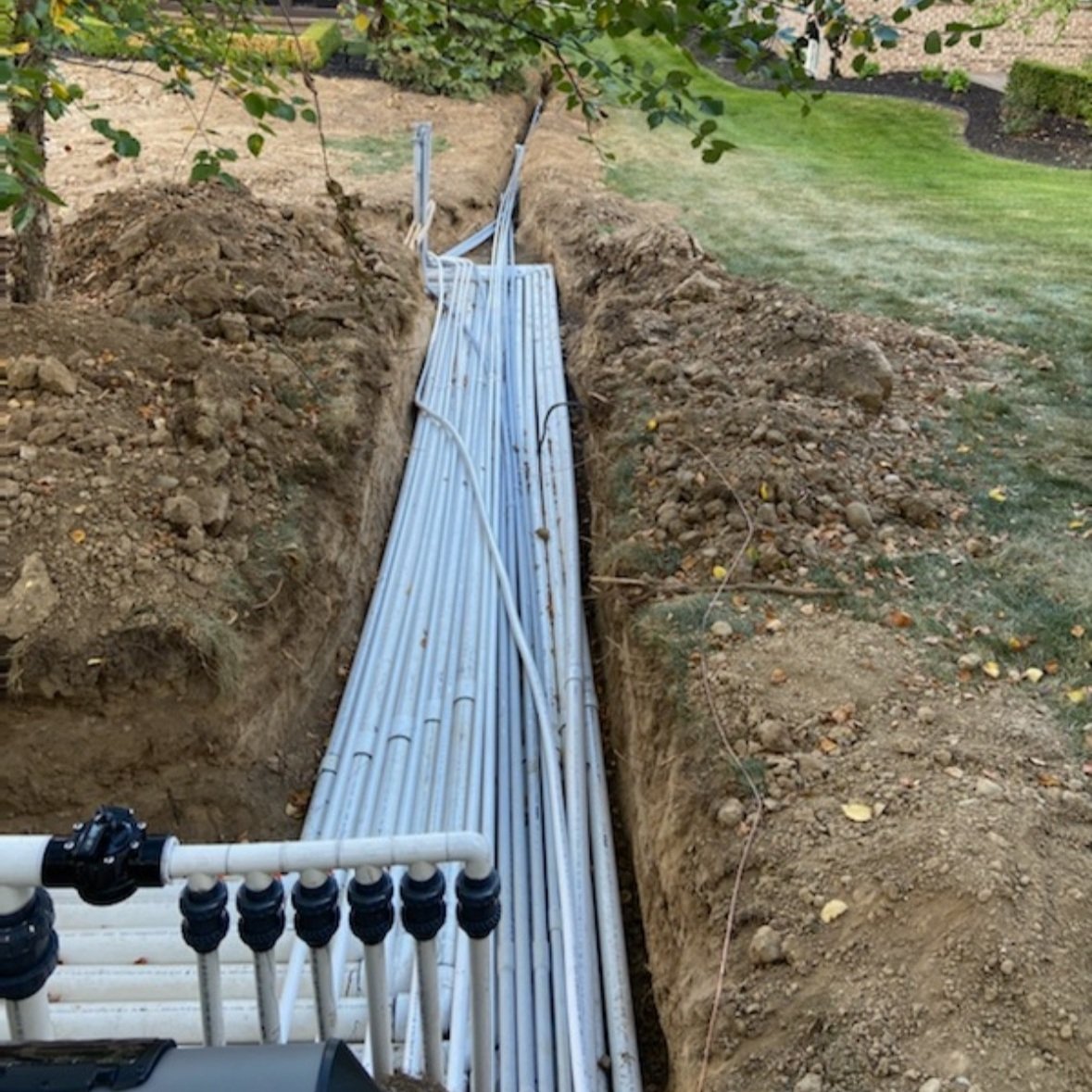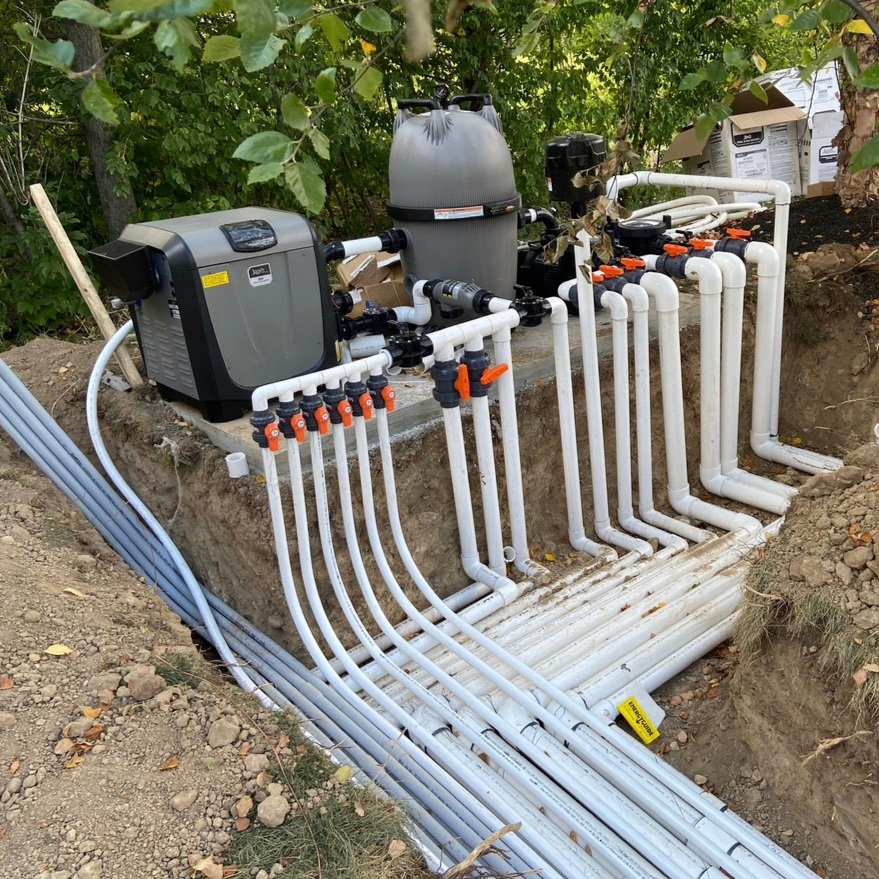All About Gunite Pools
Everything You Need to Know About Building a Gunite Pool
Inground Pool 101: Gunite v. Fiberglass and Vinyl Liners
Interested in adding an inground pool to your home? Not sure of the differences between gunite, fiberglass, and vinyl? We are here to help. I sat down with Ventures owner, Brandon Bertrang to talk all about gunite: Why we specialize in it, what makes gunite the best option for an inground pool, how the construction process works and so much more. Let’s dig in!
Q: Why does Ventures specialize in gunite rather than other types of inground pools such as fiberglass or vinyl liners?
A: There are a couple of reasons why we specialize in gunite. First and probably most importantly, they are highly customizable. Most pools you see in our portfolio can’t be done with vinyl or fiberglass. The custom-shaped pools such as Ridegwood, Trailwood, and Napavine can only be achieved with gunite. Pools with special features like Pomino’s raised 360-degree spillover spa and sun shelf, Dominion’s infinity edge, can only be achieved with a gunite pool. Gunite is also the only suitable choice for homes that have unusual topography; like a lakeside home with a slopping property. A gunite pool is the only realistic option because it is structurally sound, the pool frame itself serves as a retaining wall and foundation. If you were to install a fiberglass pool you would have to build retaining walls and structural support for the pool. In the end, it would be more expensive than a gunite pool and lower quality which simply doesn’t make sense.
The second reason is home value. There is no doubt that gunite is the highest quality pool you can get. The shell of a gunite pool is as strong as the foundation of a house and constructed in much the same way. There’s no reason a gunite pool shouldn’t last 100+ years. It will of course need maintenance and resurfacing, just like any other part of a home. But if it’s properly constructed and cared for, it will last as long as the house itself. That quality does come at a price; gunite pools are more expansive than vinyl and fiberglass and they take longer to build. But if you are investing in your home for the long term, want a pool that will add value, beauty, and entertainment, you want gunite. Sometimes I use this flooring analogy. You’re remodeling your kitchen, and installing new floors. You could get linoleum flooring; it’s affordable, it will look good for a few years before it starts to wear, it’s super quick and easy to install, and you could DIY and save even more money. If that sounds like the right fit for you, then a fiberglass or vinyl lining might be the right fit as well. If you care about the kitchen floors and want to invest in hardwood, porcelain tile, or natural stone flooring, then gunite may be the better fit for your custom pool.
Lastly, structural soundness. I mentioned this as part of the first two reasons but it’s important enough to discuss on its own. A gunite pool is built in the same way the foundation of a house is built. The construction of the pool is inspected by local building inspectors at multiple stages, just like the construction of a house; from the steel framing to the plumbing and electrical, to the concrete shell. Gunite is sprayed into a steel rebar frame and formed making it incredibly strong and airtight. Fiberglass shells on the other hand are inserted into an excavated hole of the same general shape and size. It is impossible for that hole to be the perfect fit, therefore, the surrounding area must be carefully backfilled, there could be voids, and air pockets, if done improperly these could cause weaknesses and damage down the line. Fiberglass pool manufacturers generally advertise the life expectancy of their pools at 25+ years but their warranties are typically 1-3 years. On the other hand, there are plenty of examples of free-form concrete pools built in the 1920s that still exist today. A classic example is Marilyn Monroe’s famous Brentwood home built in 1929. Today it still has its original, functioning, beautiful concrete pool, as do many of the other, less famous homes in the neighborhood.
Q: Is gunite the best option for everyone?
A: No. If you want a 20 x 40 rectangular pool without any special features, it will be more cost-effective to get fiberglass and it may be worth considering. For a standard pool like that, you’ll save time and money buying a fiberglass shell. Gunite pools are for people who value creativity and the best of the best. Not for someone who just wants a pool. If your budget is tight or you plan on moving in the near future, gunite might not be the best choice. For example, does a gunite pool make sense for a first-time home buyer on a budget who plans to upgrade to a larger house in 5 years? Probably not.
That being said, we’ve built some really beautiful, high-end, rectangular pools. If you value your home and want to invest in your outdoor space but like the classic appearance and clean lines of a rectangular pool, then yes, I would recommend gunite.
Q: Are uniquely shaped pools more expensive than rectangular ones of the same size?
A: No, not necessarily. The only reason it would be more expensive is if the client chose more expensive features and finishings. For example a higher-end pool tile, custom curved coping, more deck jets, water features, etc.
Q: Can a gunite pool be saltwater?
A: Absolutely. Most pools that we’ve built use saltwater systems.
Q: How long does it take to build a gunite pool? From breaking ground to taking your first dip?
A: The actual construction of a custom gunite pool typically ranges from 8-12 weeks at a minimum. That doesn’t include the time it takes to design your custom pool, the pre-construction permitting process, or selection process. It also does not include other elements of your build. Many of our outdoor living spaces feature a custom pool as one element of a much larger design.
Q: How is a gunite pool built?
A: There are five stages to constructing a custom gunite pool.
Stage 1: Rough Construction (2-6 weeks)
Pool layout: Staking its shape, marking the perimeter.
Excavation: The pool is excavated and excess soil is removed from the property by truck.
Framing: Rebar is tied in to frame the shape of the pool including elements such as spas, sun shelves, and tanning decks.
Rough plumbing: This includes all plumbing within the pool walls: draining, return jets, therapeutic jets, and all water features.
Inspection: The local building inspector checks the steel frame prior to the concrete being poured.
Gunite/Shotcrete: Concrete is shot into the framing at extremely high pressure, filling the frame and forming to the ground and steel forms.
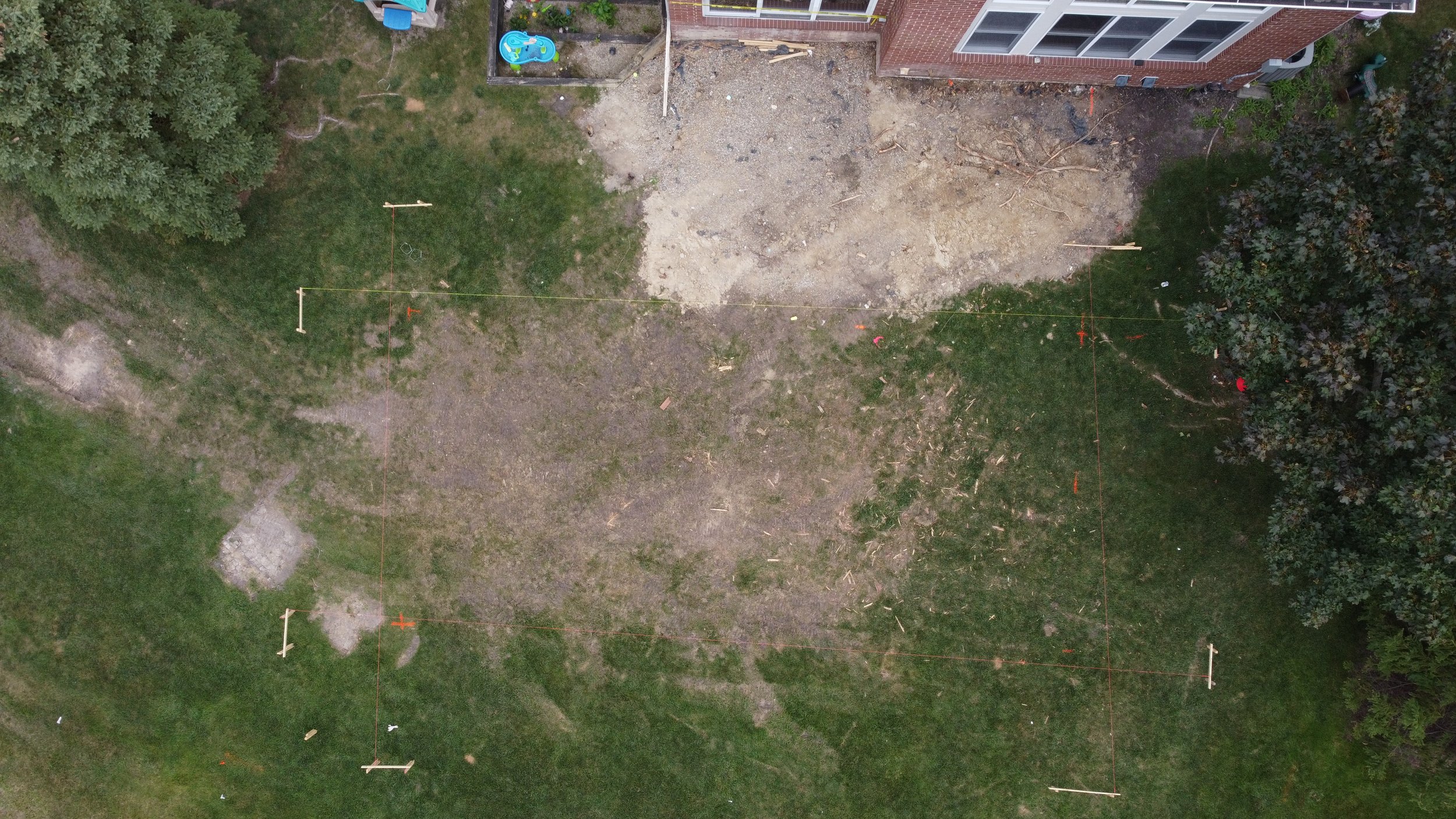
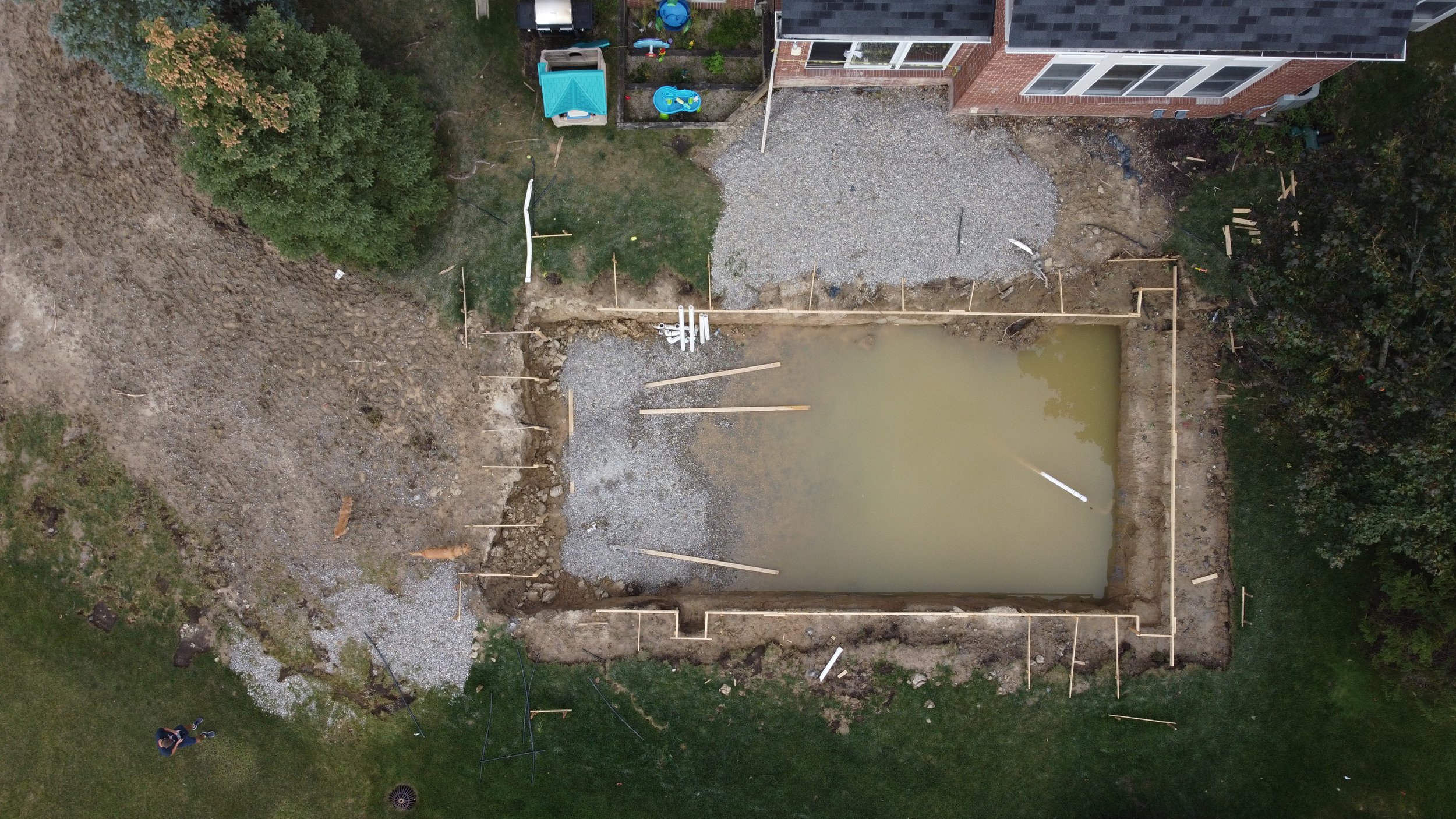
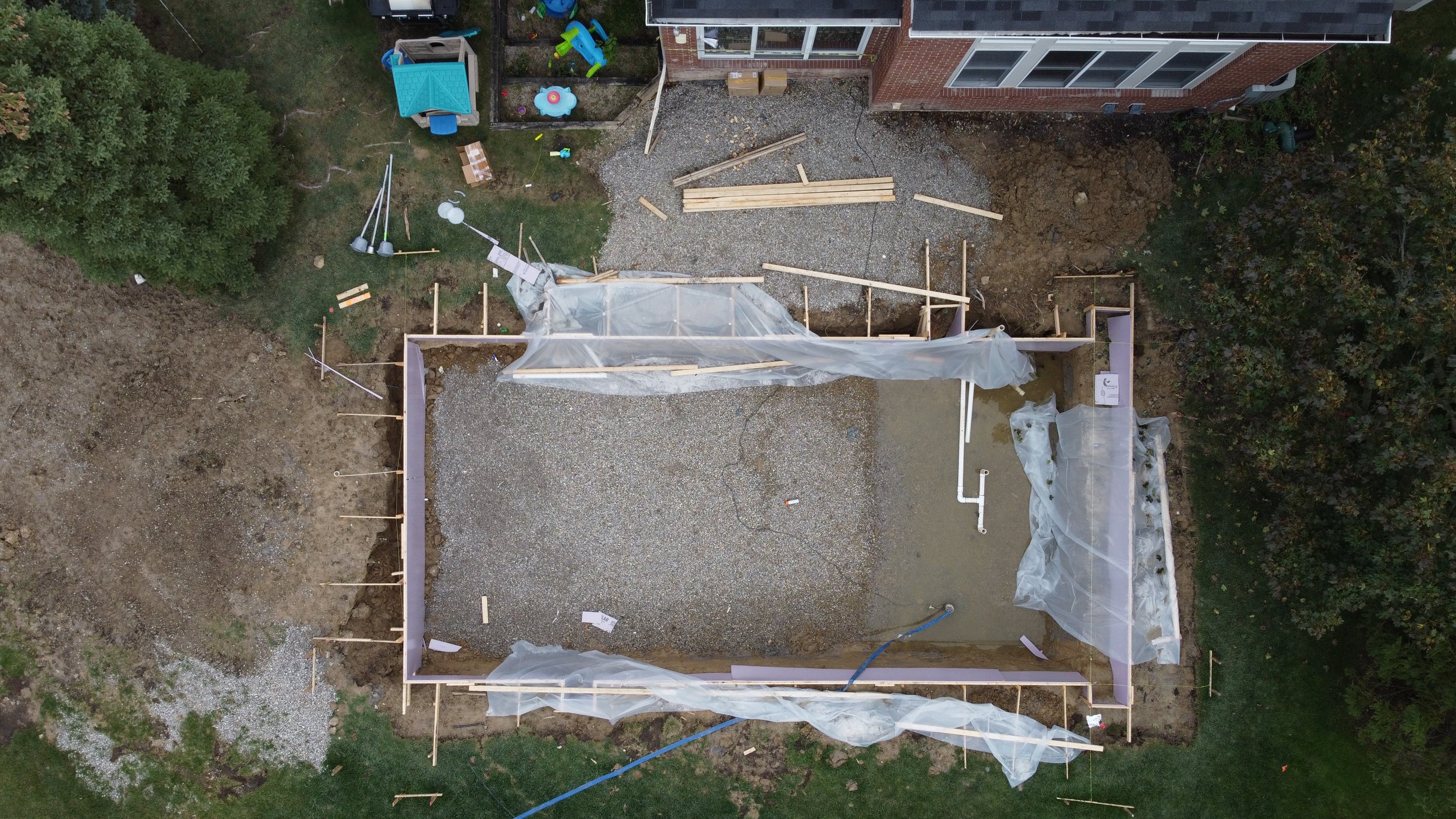
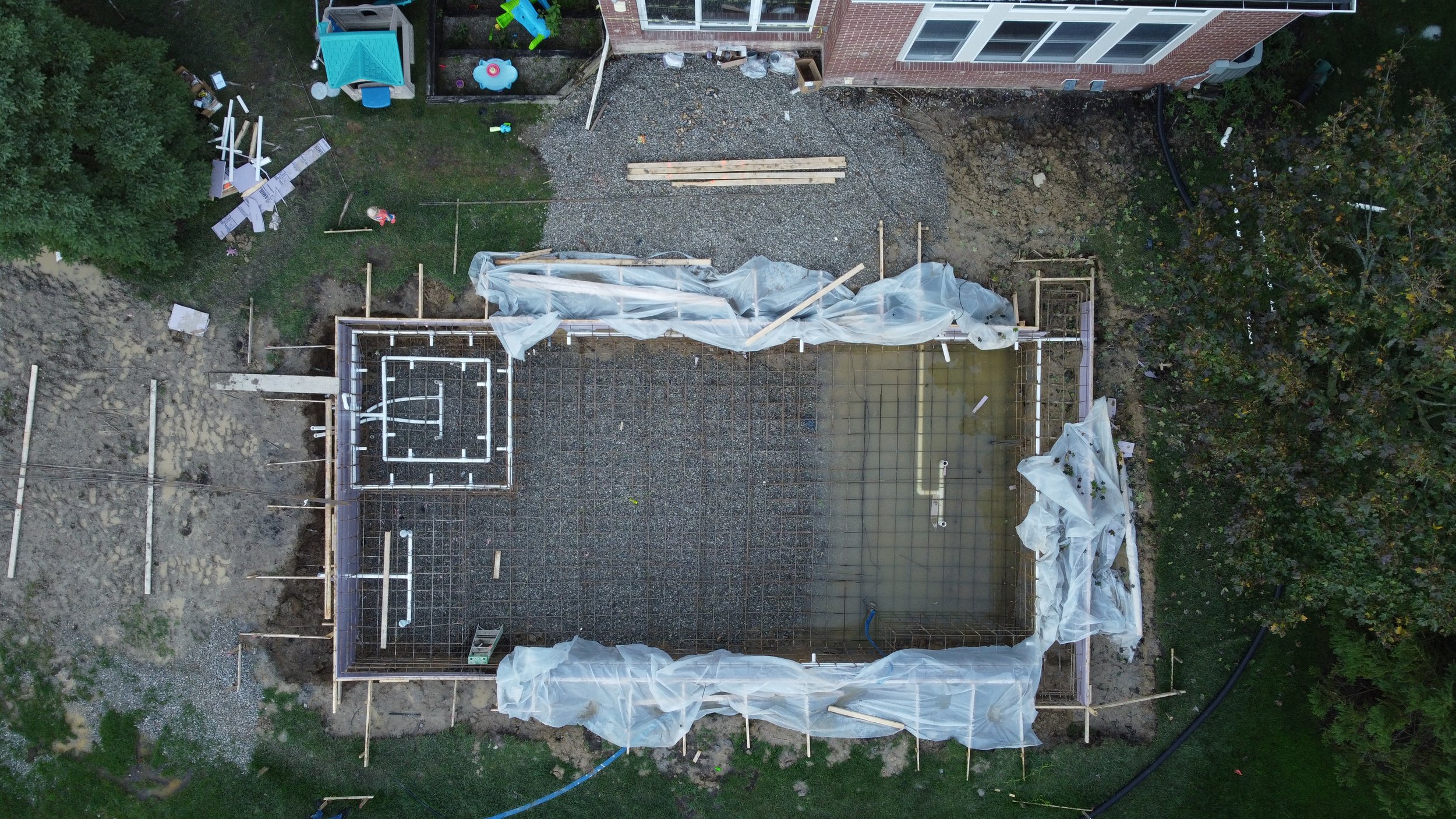
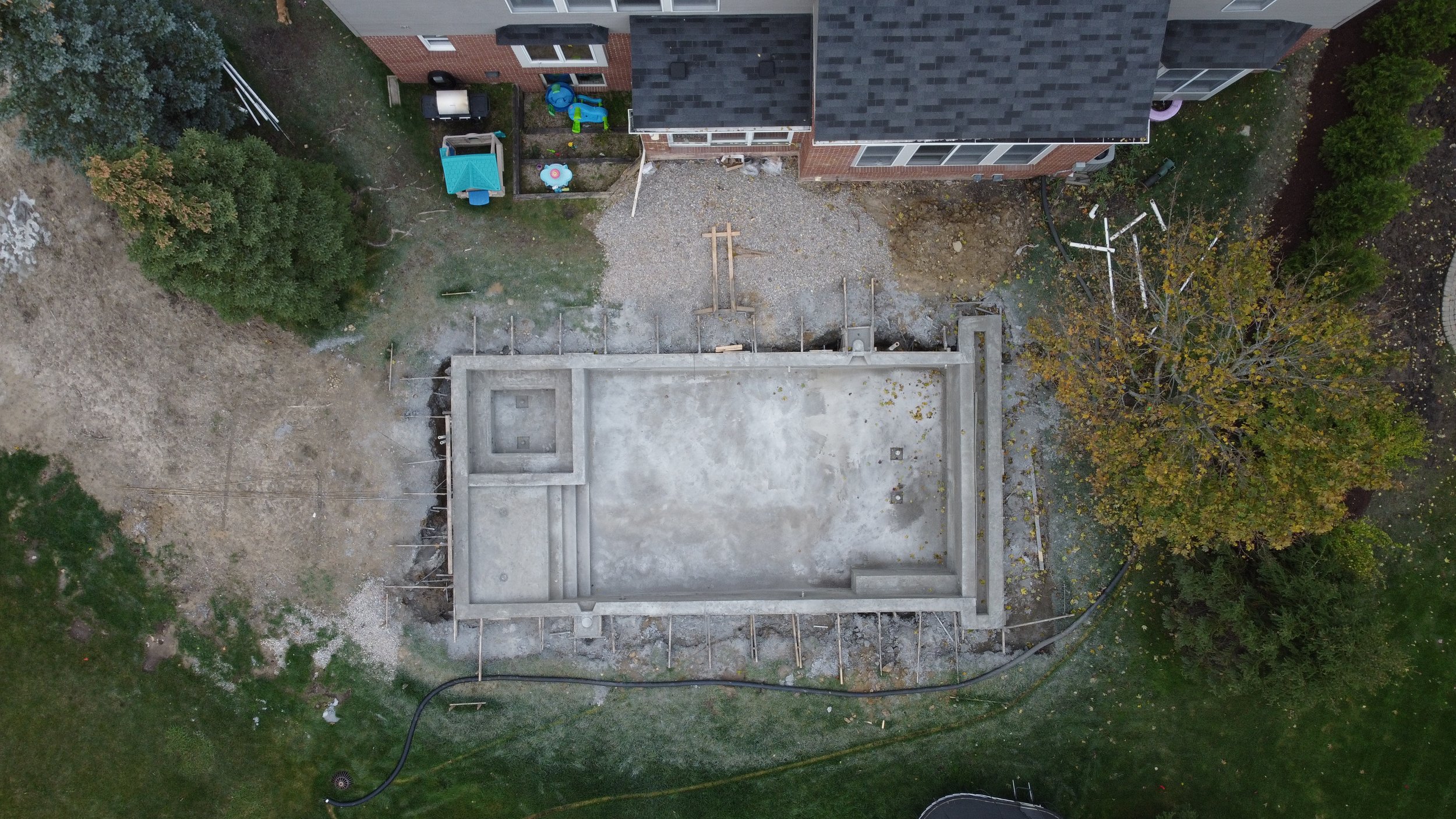
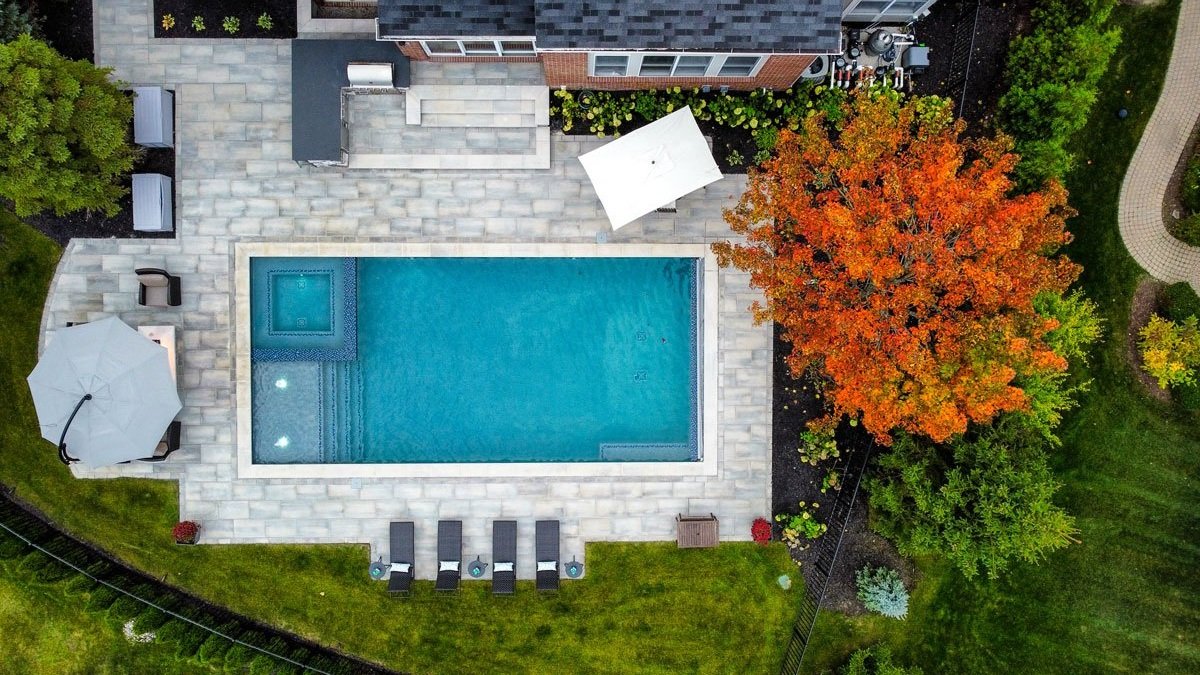
Stage 2: Underground Work (2-3 weeks)
Trenching: A trench is dug around the pool perimeter for plumbing and electricity and the pool equipment pad is poured.
Electrical: All electrical is run for lights and low voltage features.
Finish plumbing: All plumbing that runs between the pool and equipment pads.
Inspection: All plumbing, electrical, and concrete is inspected by the local building department.
Stage 3: Coping and Tile (1-2 weeks)
Coping: limestone or manufactured perimeter is laid.
Tiling: Pool tile is laid on sun shelves, benches, infinity edges, and along the waterline at 6’ with 2’ bands on steps.
Stage 4: Finish Electrical and Pebble Prep (1-2 days)
Electrical: Pulling all lights through pools, hooking up electrical to house, checking power for all equipment.
Cleaning Concrete: Remove debris and prep concrete for pool pebble.
Water Proofing: Filling all voids/waterproofing
Stage 5: Pebble (1-2 days)*
Pebble: Spray on pool pebble or whatever plaster finish the client has chosen. This waterproofs and gives finished look.
Acid Washing: Next working day, the pool is acid washed to clean all the slurry (wet concrete) and makes all aggregate show.
Fill: The same day as the acid wash, a water truck comes to fill the pool and turn it on.
*Many outdoor living spaces feature a lot of hardscaping in addition to the pool. If this is the case, we may wait till the end of the build to install the pebble in order to make sure dust and debris don’t get in and stain the pebble.
Once the pool is filled, it can be swum in the same day. However the first four weeks are considered a “break-in period” Water temperatures are monitored, chemicals are slowly introduced and filters are cleaned.
Q: Will Ventures ever offer other types of inground pools in addition to gunite?
A: While we don’t rule ourselves out for future opportunities, we believe that gunite is the best option for our clients and would only offer another option if we felt it held up to those standards.
Q: How much does a custom gunite pool cost?
A: The cost of a custom pool can vary by hundreds of thousands of dollars. To see more information on pricing fill out our contact form and we’ll email you a copy of our 2023 Cost Guide.
Have a question we didn’t cover? Drop a comment below. We’d love to hear from you.




